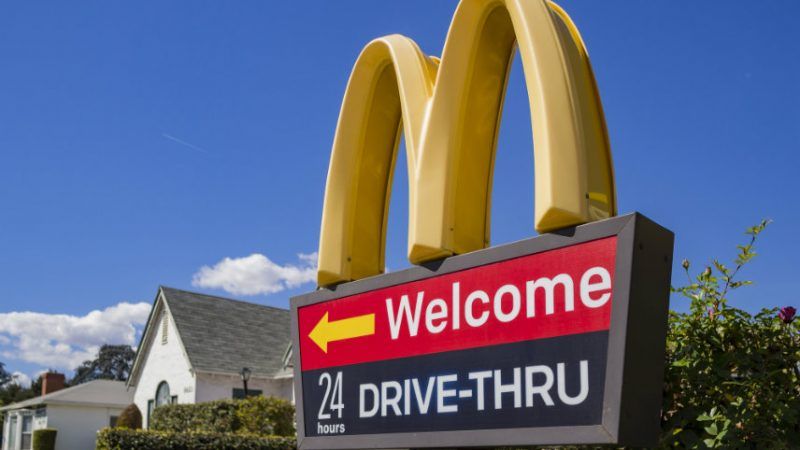South Carolina Island Seeks Chain Business Ban to Maintain 'Unique Character'
The ban may be well-intentioned, but it's misguided all the same.


A South Carolina island might soon ban chain restaurants and other stores from opening up new locations. One of ban's main goals, according to the proposed ordinance, is to maintain the island's "unique character."
About 2,400 people live on Folly Beach Island, which itself is part of the city of Folly Beach, South Carolina. The ordinance passed earlier this month by the city council would prohibit "formula businesses within the downtown commercial, island commercial, and marine commercial districts."
"Formula businesses," meanwhile, are defined as establishments "with 10 or more outlets anywhere in the world; and with standardized services, such as merchandise, trademark, logo, uniforms, décor, etc."
The island is currently home to a Subway restaurant and a BP gas station, though neither establishment would be affected by the ban. Folly Beach Island already has a ban on drive-through businesses in place.
The ban on chain businesses was originally proposed by the nonprofit group Lowcountry Local First, the Charleston Post and Courier reports. "This is not a new model," the organization's operations director, Lauren Gellatly, told the newspaper, explaining that 20 cities around the nation have enacted similar rules.
In a letter from the city's planning commission to the city council, Folly Beach Zoning Administrator Aaron Pope said no residents publicly opposed the ban. As a result, the commission approved the ordinance and referred its recommendation to the city council.
Folly Beach Mayor Tim Goodwin, who supports the measure, says it's meant to help small businesses. "I think it's good to keep the businesses of Folly Beach, Folly Beach," Goodwin told WCSC. "The goal is to keep mom and pop places healthy and alive."
That goal is reflected in the wording of the ordinance itself. The proposed ban, which is up for a final vote next month, is meant to "preserve the unique character of the nonresidential areas on Folly Island proper." The ordinance is also supposed to "provide employment opportunities."
Not everyone supports it. South Carolina Restaurant and Lodging Association spokesperson Katie Montgomery told the Post and Courier that "businesses should be reflections of their local communities and be a cohesive part of their neighborhoods." But, she added, "too broad stroke of a ban could be prohibitive to growing restaurant groups and to customers looking for diverse dining options."
Montgomery has a point. The ban may be well-intentioned, but it's misguided all the same. If consumers want to pay more for town character at mom and pop businesses, then they will. In general, the government—whether it be at the federal, state, or local level—should not be in the business of propping up businesses just for the sake of keeping them open. Folks who want cheaper options shouldn't have their access to those options cut off just because the government says so.
It's simple logic, as food lawyer Baylen Linnekin noted in a 2016 piece for Reason:
Studies of the best places to eat often conclude that the more restaurants a city has per-capita, the better its restaurant scene. It's no surprise that the more choices a consumer has, the better off that consumer is.
Plus, subsidizing local businesses is a form of "crony capitalism," as Reason's Katherine Mangu-Ward argued in 2013.
She's right. For the sake of consumers, Folly Beach shouldn't get in the way of the free market.


Show Comments (88)